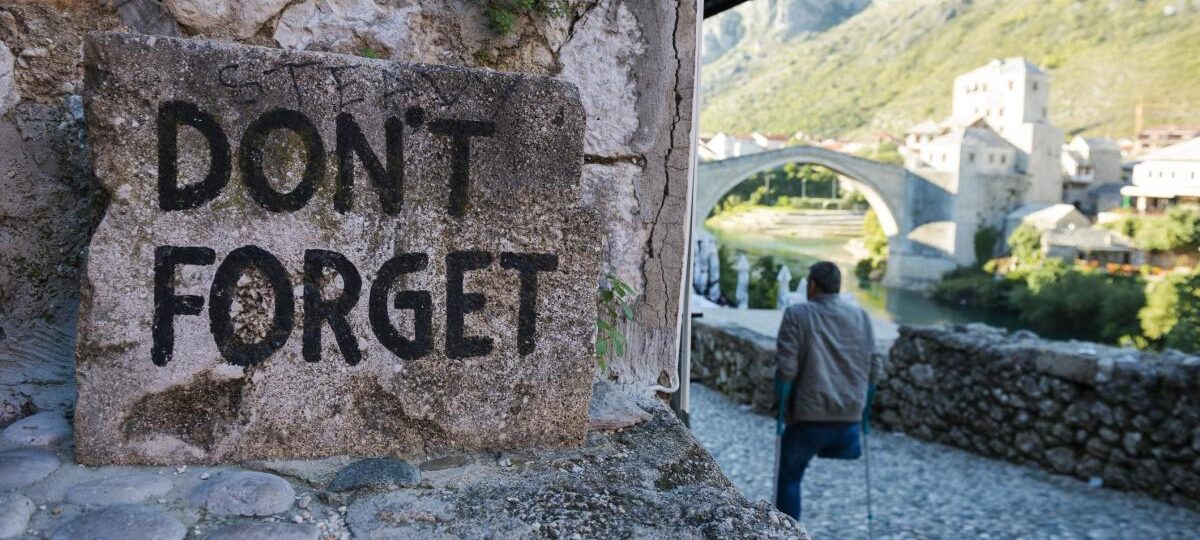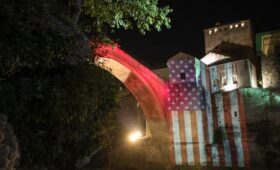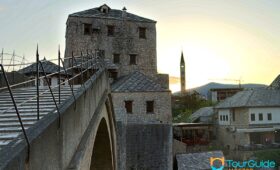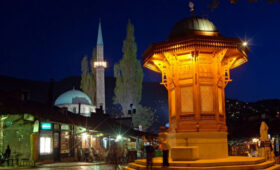While 9 May is celebrated across Europe as Victory Day over Fascism and Europe Day, in the city of Mostar, this date marks a profound and painful turning point. On 9 May 1993, the fragile alliance between Bosniak and Bosnian Croat forces shattered, igniting a brutal conflict that would devastate the city and its people.
The Collapse of Unity
Mostar, a city renowned for its multicultural heritage, became a battleground when the Croatian Defence Council (HVO) launched an offensive against the Army of the Republic of Bosnia and Herzegovina (ARBiH), predominantly composed of Bosniaks.
The attack led to the division of Mostar along the Neretva River, with Bosniaks controlling the east and Croats the west. The ensuing urban warfare resulted in significant civilian casualties and the destruction of infrastructure.
Over the next year and a half, Mostar would experience:
- Prolonged siege and shelling by HVO forces on the eastern part of the city.
- Destruction of cultural heritage, including the centuries-old Stari Most (Old Bridge), a symbol of unity, bombed in November 1993 by Croatian Defense Council.
- Forced displacement and ethnic cleansing
- Detention camps for civilians, including the infamous Heliodrom camp, where Bosniaks were subjected to abuse and forced labor.
The Hague Tribunal and Justice
The International Criminal Tribunal for the former Yugoslavia (ICTY), based in The Hague, played a central role in investigating and prosecuting war crimes committed during the Croat–Bosniak conflict in Mostar.
Key proceedings:
- Six high-ranking Bosnian Croat officials, including Jadranko Prlić, were indicted for crimes against humanity, including persecution, unlawful deportation, unlawful confinement, and destruction of cultural and religious buildings.
- The trial, known as the “Prlić et al.” case, concluded in 2017. The ICTY found the men guilty of participating in a joint criminal enterprise to create a “Croatian entity” in parts of Bosnia, including Mostar.
- The court recognized the destruction of the Old Bridge as a war crime, not just a cultural loss.
- The verdicts acknowledged systematic abuse and discrimination against Bosniak civilians.
Reflections and Reconciliation
Today, 9 May serves as a day of reflection in Mostar. While the city has made strides toward rebuilding and reconciliation, the scars of the past remain. Efforts to bridge the divide continue, with initiatives aimed at fostering dialogue and understanding among the city’s diverse communities.
The story of Mostar on 9 May 1993 is a poignant reminder of the fragility of peace and the importance of unity in the face of division. As the city moves forward, it carries with it the lessons of its past, striving to ensure that such a tragedy never occurs again.



